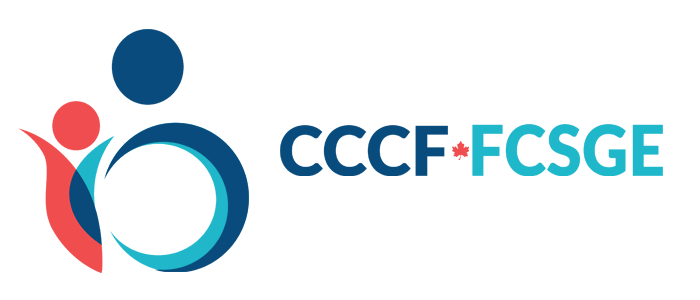The Canadian Child Care Federation, along with its pan-Canadian affiliates – child care organizations across Canada – applaud the investment in, and the building of, a Canada-wide ELCC system that centers the early childhood educator in its design. This has long been the focus of our work: holistic and comprehensive funding and policy that enables system building, creates inspiring learning environments and curriculum for children, and builds positive working environments for educators – the professional women and men who provide that quality care. We all benefit — children, families, communities, the economy and Canada’s ELCC workforce.
CCCF is pleased to inform the HUMA Committee’s study on Bill C- 35 — an Act respecting early learning and child care in Canada. Our submission reflects our experience in mobilizing research into policy to deliver high-quality early learning and child care for nearly 40 years. We would be pleased to further discuss our recommendations and can be contacted directly.
CCCF has long known that investing in ELCC is good for Canada’s economy and most certainly, the economic security of women and families. But this is our opportunity to build a pan-Canadian system that is creating relevant, lively and respectful spaces for children that honour diversity and difference. Spaces that are creating more liveable worlds for the children, the educators, the families and the community. Inspiring learning environments, lead to connected thriving communities.
The funding model must be for system building and supply-side funding and should replace the market-driven revenue model most of Canada relies on, namely parent fees. The way to build and fund an ELCC system is to directly fund the service so parent fees will be affordable and support the infrastructure and the ELCC workforce to ensure quality, inclusion, accessibility and robust programs.
About CCCF — Early Learning and Child Care in Canada
We are leaders in the early learning and child care sector in Canada. Our affiliate organizations in each province and territory represent early learning and child care organizations from across Canada. They provide leadership for CCCF. Each affiliate shares feedback and information via their member council representative. They give voice to the deep passion, experience and practice of early learning and child care in Canada.
We mobilize excellent research in policy and practice to better inform service development and delivery. We provide leadership on issues that impact our sector because we know we are making a difference in the lives of young children.
CCCF Position and Recommendations
The CCCF is in full support of Bill C-35 and is a committed partner in realizing the Canada-wide early learning and child care system.
For decades, CCCF has long advocated for accessible, affordable, inclusive, and high-quality child care as essential to healthy child development, positive family outcomes, gender equity, poverty reduction, and socio-economic prosperity.
Children’s Rights Perspective: CCCF encourages that language in any legislation or policy on child care be written from a child’s rights perspective. This is the highest benchmark, our vision for children: to be happy, healthy, safe and thriving so that they can grow to be engaged participants and creators in society.
Sustainable, Predictable Funding: CCCF applauds the federal commitment to sustained and ongoing funding to ensure that child care is affordable, accessible, inclusive and high-quality across Canada. We would further recommend that within Bill C-35, funding be explicitly described as annualized and tied to the licensed, regulated system of child care, which includes centre-based and home-based child care.
We encourage mechanisms to ensure child care funding remains predictable, sustainable and sufficient in each province and territory based on the community needs and objectives of the CWELCC agreements. Finally, funding provided to operators must reflect the true costs of providing high-quality, accessible and inclusive care and include suitable inflationary increases as part of the funding formula.
Early Childhood Education Workforce: The success of the CWELCC plan is only possible with well-trained, valued and compensated Early Childhood Educator (ECE) professionals — who impact children’s lives positively in centre-based and home-based child care. Expansion goals for child care across Canada cannot be realized without the tens of thousands of competent and trained
professional educators to serve families all across Canada. Remote communities and child care “deserts” are especially vulnerable.
Without a dedicated and thoughtful plan to educate, attract, employ and retain new and existing ECEs, Canada will not be able to meet demand or fulfill the expansion goals within the CWELCC agreements.
CCCF sees an opportunity to strengthen the language within the Act to emphasize the federal government’s leadership role to strengthen our essential ECE workforce — professionals who create the inspiring learning environments for children within the early learning curriculum. This could include principles for collaboration and sustained investments in a national strategy that includes recruitment, education, retention and (re)training of ECEs. A cultural transformation must follow to ensure that Canadians embrace the value of regulated, quality child care and the ECEs who deliver that care for children.
Educational and Career Pathways: Federal leadership could include establishing national standards for competitive wages and national education/accreditation standards with foreign credential recognition, that supports high-quality programs; working collaboratively with the provinces and territories to increase capacity within Canadian early childhood education programs, and accelerated entry of newcomers interested and able to work in the Canadian child care system; and exploring interprovincial early childhood education/accreditation mobility and recognition across Canada.
Accountability and public reporting: The CCCF wishes to reinforce the critical importance within the proposed Act to ensure accountability through an annual federal public report on progress toward an early learning and child care system. Key performance indicators such as children’s rights are necessary to measure the current system against desired outcomes and will allow for improved child care practice, policy and pedagogy.
Child Care and Early Learning Research: CCCF recommends that the Act stipulates clearly that there be Canadian-based early learning and child care research across a range of disciplines and methodologies. Meaningful efforts to address the lack of Canadian research in critical areas, including examining non-profit child care in Canada, and early learning and child care for subpopulations such as immigrant children, children from official minority language communities, and Indigenous children are essential to meeting the objectives of CWELCC.
We recommend amplifying the Government of Canada’s priority of licensed, regulated, non-profit early learning and child system expansion (centre-based and home child care), accountability, and oversight within Bill C-35.
National Advisory Council: The CCCF supports the establishment of the National Advisory Council on Early Learning and Child Care and enshrining this advisory body into law. We would welcome additional, ongoing, formal, and informal methods to ensure that federal policies, positions, and funding commitments related to CWELCC are informed by the expertise and experiences of child care program providers through our CCCF affiliates in the provinces and territories as well as all levels of government and families.
Inclusivity, Equity and Accessibility: The CCCF supports declarations and guiding principles within Bill C-35 that speak to equity, inclusion and accessibility as a priority for the Canada-wide early learning and child care system. Additionally, we support the acknowledgement that First Nations, Inuit and Métis children and families are best supported by early learning and child care programs5
and services that are culturally appropriate and that are led by Indigenous peoples.
Culturally Responsive: To assist children of all backgrounds and abilities, curriculum activities, as well as program structure and conditions, must be adaptable, equitable, and inclusive. For example, incorporating culturally-specific content and providing opportunities for children and families to participate in their first language respects and affirms diversity, cultivates a sense of belonging, and supports the development of positive self-identity.
Before and After School Support:
Early learning is part of an integrated system with education and before-and after-school care programs. We feel it’s important to acknowledge that learning and development does not stop at age 6 and families need support managing the high cost of before-and-after- school care for their older children.
Thank you for the opportunity to provide perspective on Bill C-35. The CCCF is in full support of this critical piece of legislation, which ensures the federal goal, vision and principles for the Canada-wide early learning and child care system are sustained and protected into the future. We look forward to continuing to work together with all our government partners to realize this transformative system for children and families.












